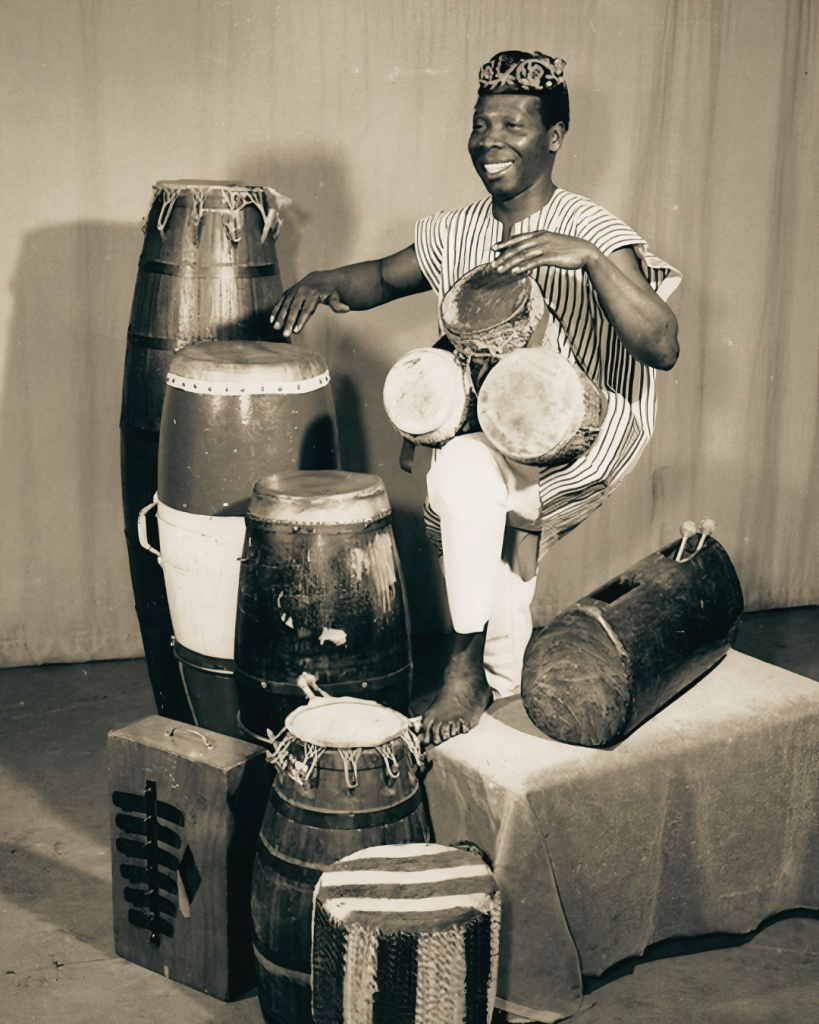Pure water was invented as an innovative solution to the lack of reliable public water infrastructure in most West African countries. It would go on to transform how millions accessed potable water. Thirty years later, sachet water has become a multibillion-dollar industry throughout West Africa.

From Ice Water to Pure Water
The birth of sachet water in Nigeria was a direct response to lack of public water infrastructure. Before the mid-90s, Nigerians purchased “ice water“—small portions of water tied up in transparent white nylons and sold commercially. Ice water was sold out of buckets and often bought with coins. However, this rudimentary packaging, while catering to a need, offered little to no protection against contamination.
Everything changed in 1994 when Sir Isaac Adeagbo Akinpade founded Deagbo Industries Limited (DIL) in Ibadan, Oyo State. He would pioneer Nigeria’s first sachet water production with his DIL Pure Water. This innovation coincided with and in some instances, inspired, similar developments across West Africa.

This new phenomenon was named “pure water” as a way of distinguishing it from its fore-runner, the untreated and unfiltered “ice water.” This branding gave the new product a perception of safety and quality and it quickly resonated with consumers who had few drinking water options. Also, it was lightweight, portable and the sachet was disposable; these made them preferable to alternatives like water bottles or jerrycans.
By the late 1990s, more sophisticated machines that made water sealing more efficient were introduced. And by 2000, NAFDAC endorsed the product. Originally a solution to water scarcity and initially projected to be a passing trend, this phenomenon rapidly evolved into a booming industry, creating what Nairametrics now identifies as “Nigeria’s most sold commodity.”

Becoming An Economic Powerhouse
The industry’s low barrier to entry and the widespread demand contributed to its explosive growth. Anyone could start a small-scale production facility in their kitchen with minimal investment. With machines that could produce anything from a few bags to those that could produce hundreds, the business could be set up and run at scale. All that the business required was access to tap water, water filters and for direct retailers, a refrigerator.
It would quickly create a new class of small business owners that earned livelihoods through producing, distributing and retailing the product. According to NAFDAC, as of 2017, over 10 million sachets of pure water are consumed daily in Nigeria. Many entrepreneurs have built houses, purchased vehicles and funded their education and that of family members using the profits they generated from meeting this massive demand.

The Environmental Cost of Convenience
Despite its economic benefits, sachet water creates peculiar ecological challenges. According to the United Nations Environment Programme (UNEP), Nigerians discard an estimated 50-60 million sachets daily, primarily in urban centres like Lagos. These low-grade single-use plastic sachets take 30-40 years to decompose.
The environmental impact manifests in multiple ways. Discarded sachets block drainage systems and cause increased flooding during the rainy season. Water bodies into which they are discarded become clogged, disrupting aquatic ecosystems. Moreover, the sachets decompose slowly, leading to long-term degradation of land used as informal landfills. Even when burned, they pollute the air with toxic chemicals.
The Road Ahead
The story of pure water is a testament to the ingenuity of African entrepreneurs innovatively responding to critical infrastructure gaps. It is also a lesson in the unintended consequences when sustainable planning lags behind a rapidly growing market.
As West Africa’s population grows toward one billion by 2050, so will the ecological stress if sachet water remains the primary source of drinking water. The entrepreneurs who built the sachet water industry demonstrated remarkable ingenuity in addressing this critical need. That same innovative spirit now invites African entrepreneurs to tackle the novel challenge of providing more sustainable access to clean water and to create new industries and opportunities in the process.
Automatic water dispensers are one of the most promising developments. These are already appearing in cities like Dakar. They allow consumers to refill reusable containers with purified water at affordable prices. This model provides accessible water while at the same time, dramatically reduces plastic waste. These models represent the future of water access in West Africa.













